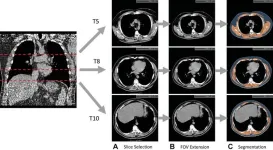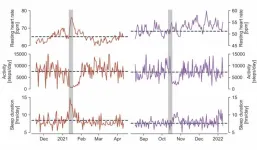“While there have been many trials comparing coronary artery bypass graft (CABG) surgery and percutaneous coronary intervention (PCI), most have enrolled predominantly white men. There is thus a great need to generate high-quality evidence to guide clinical decision-making for such procedures in women and minority groups who have been underrepresented in most prior studies,” explained Gregg W. Stone, MD, Director of Academic Affairs for the Mount Sinai Health System and Professor of Medicine (Cardiology), and Population Health Science and Policy, at Icahn Mount Sinai, who is one of the two Principal Investigators of this trial.
“We have designed these trials to examine a specific primary endpoint that is central to what patients want: to live longer and feel better,” Dr. Stone adds. “Our primary composite hierarchical endpoint is thus survival and improvement in quality of life, integrated over three-year follow-up. Quality of life encompasses all the risks and benefits of the different procedures, and overcomes limitations of restricting the primary outcomes to a few select adverse event types which may be difficult to define and of variable importance. We are hopeful this new approach will become recognized as the preferred principal outcome for future revascularization trials.”
Icahn Mount Sinai and Weill Cornell Medicine will share the funding, and Maurio Gaudino, MD, PhD, the Stephen and Suzanne Weiss Professor in Cardiothoracic Surgery and Assistant Dean for Clinical Trials at Weill Cornell Medicine will serve as co-Principal Investigator with Dr. Stone. The award will be distributed in several phases to conduct the two integrated “REvascularization CHoices Among UnderRepresented Groups Evaluation (RECHARGE) trials called RECHARGE:Women and RECHARGE:Minorities. These are set to launch in October 2023.
They will enroll a total of approximately 1,200 patients across 45 or more sites in the United States and Canada who are eligible for treatment with either PCI or CABG. PCI is a minimally invasive stenting procedure in which stents serve as a scaffold to open the blocked arteries from within and restore blood flow to preserve heart muscle function. CABG—also known as bypass surgery—is in most cases an open-heart procedure that involves bypassing the coronary artery segments that are blocked or extremely narrowed with healthy arterial or venous grafts. The overall study will be conducted over a 6.5-year period.
“These findings could transform cardiac care for women, Black, and Hispanic patients. If outcomes are better with CABG than PCI in one or both groups than the majority of such patients should undergo surgery. Conversely, if survival and quality of life are similar or better after PCI, this less-invasive approach would be warranted for most patients,” Dr. Stone adds.
The Patient-Centered Outcomes Research Institute is an independent, nonprofit organization authorized by Congress in 2010. Its mission is to fund research that will provide patients, their caregivers, and clinicians with the evidence-based information needed to make better-informed health care decisions.
This funding award has been approved pending completion of a business and programmatic review by Patient-Centered Outcomes Research Institute staff and issuance of a formal award contract.
About the Icahn School of Medicine at Mount Sinai
The Icahn School of Medicine at Mount Sinai is internationally renowned for its outstanding research, educational, and clinical care programs. It is the sole academic partner for the eight member hospitals* of the Mount Sinai Health System, one of the largest academic health systems in the United States, providing care to a large and diverse patient population.
Ranked No. 14 nationwide in National Institutes of Health funding and in the 99th percentile in research dollars per investigator according to the Association of American Medical Colleges, Icahn Mount Sinai has a talented, productive, and successful faculty. More than 3,000 full-time scientists, educators, and clinicians work within and across 34 academic departments and 44 multidisciplinary institutes, a structure that facilitates tremendous collaboration and synergy. Our emphasis on translational research and therapeutics is evident in such diverse areas as genomics/big data, virology, neuroscience, cardiology, geriatrics, and gastrointestinal and liver diseases.
Icahn Mount Sinai offers highly competitive MD, PhD, and master’s degree programs, with current enrollment of approximately 1,300 students. It has the largest graduate medical education program in the country, with more than 2,600 clinical residents and fellows training throughout the Health System. In addition, more than 535 postdoctoral research fellows are in training within the Health System.
A culture of innovation and discovery permeates every Icahn Mount Sinai program. Mount Sinai’s technology transfer office, one of the largest in the country, partners with faculty and trainees to pursue optimal commercialization of intellectual property to ensure that Mount Sinai discoveries and innovations translate into health care products and services that benefit the public.
Icahn Mount Sinai’s commitment to breakthrough science and clinical care is enhanced by academic affiliations that supplement and complement the School’s programs. Through Mount Sinai Innovation Partners (MSIP), the Health System facilitates the real-world application and commercialization of medical breakthroughs made at Mount Sinai. Additionally, MSIP develops research partnerships with industry leaders such as Merck & Co., AstraZeneca, Novo Nordisk, and others.
The Icahn School of Medicine at Mount Sinai is located in New York City on the border between the Upper East Side and East Harlem, and classroom teaching takes place on a campus facing Central Park. Icahn Mount Sinai’s location offers many opportunities to interact with and care for diverse communities. Learning extends well beyond the borders of our physical campus, to the eight hospitals of the Mount Sinai Health System, our academic affiliates, and globally.
-------------------------------------------------------
* Mount Sinai Health System member hospitals: The Mount Sinai Hospital; Mount Sinai Beth Israel; Mount Sinai Brooklyn; Mount Sinai Morningside; Mount Sinai Queens; Mount Sinai South Nassau; Mount Sinai West; and New York Eye and Ear Infirmary of Mount Sinai.
-####
END







